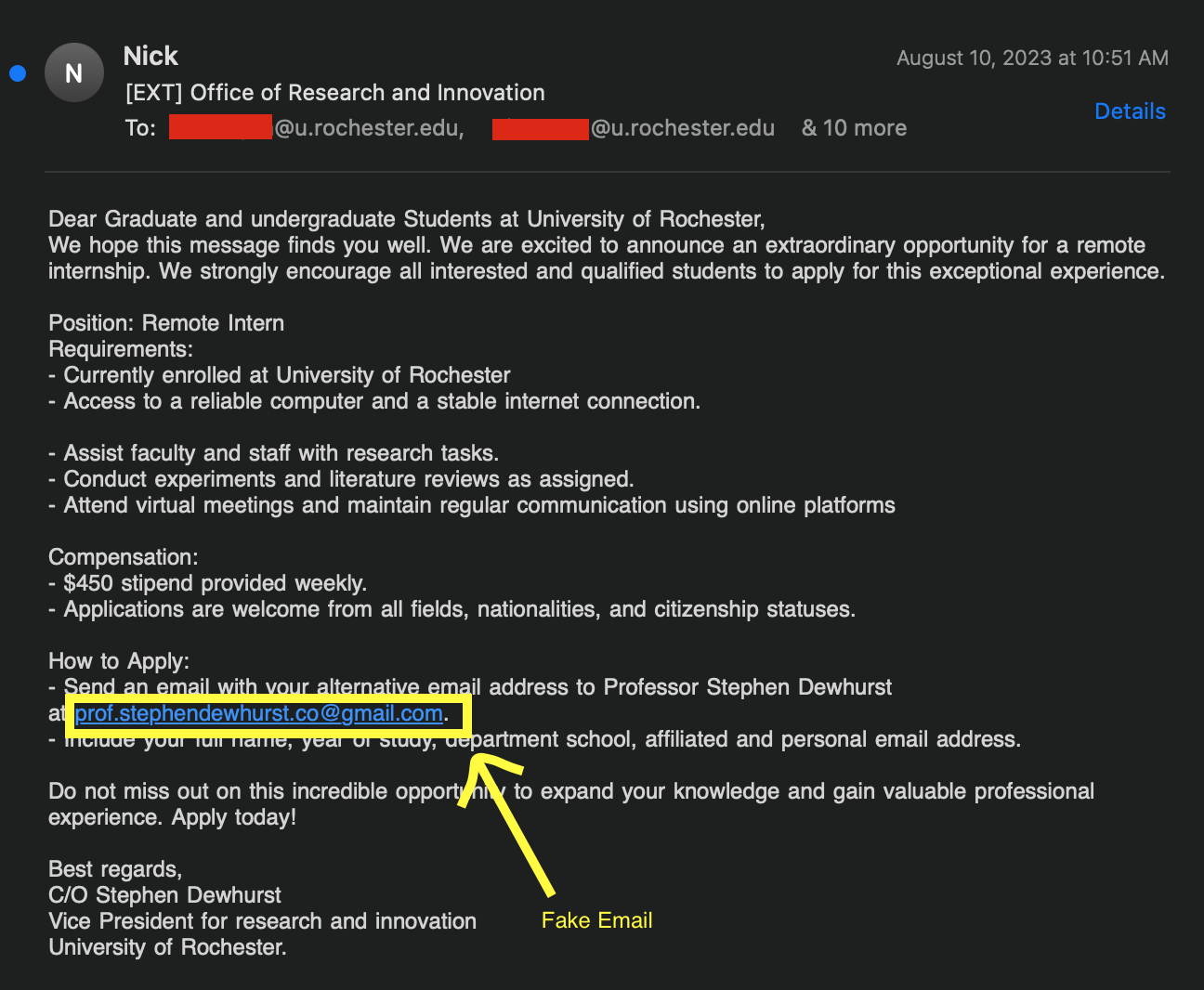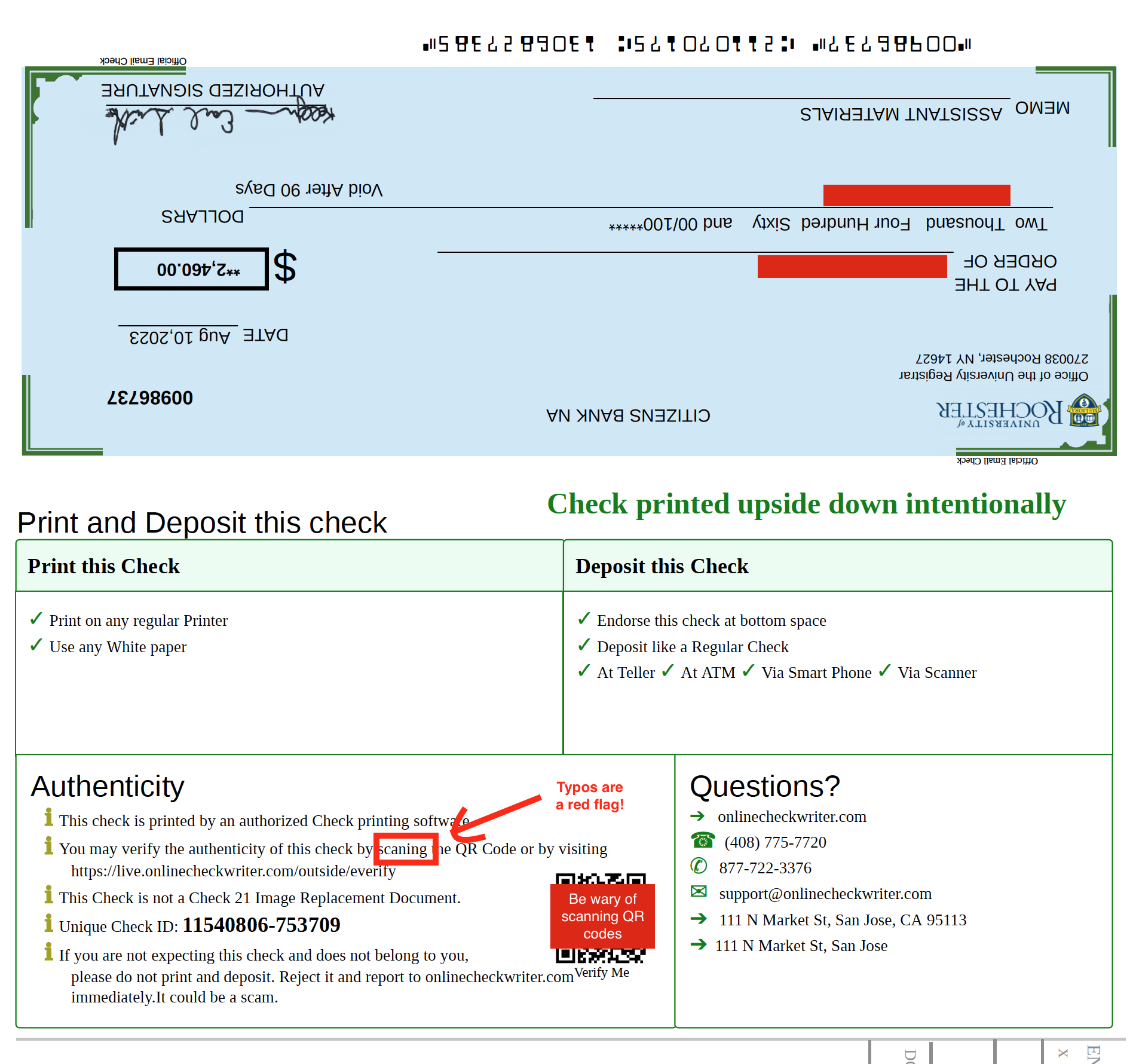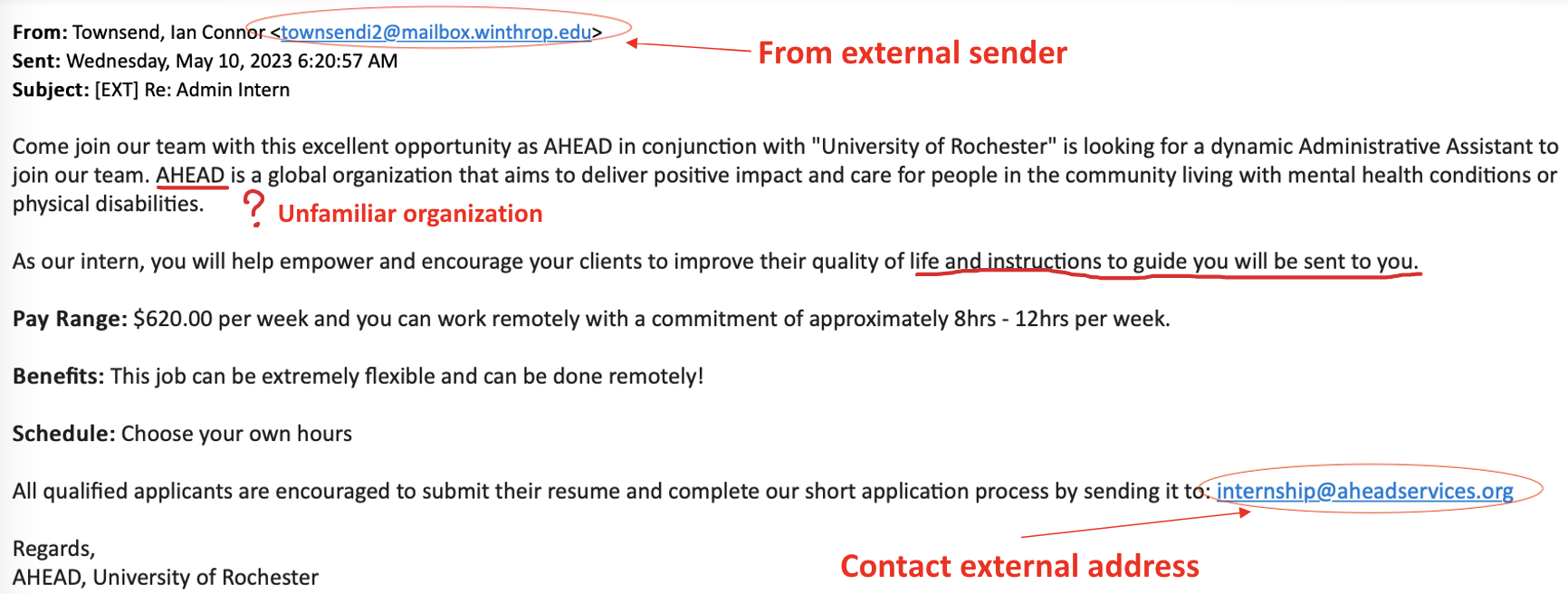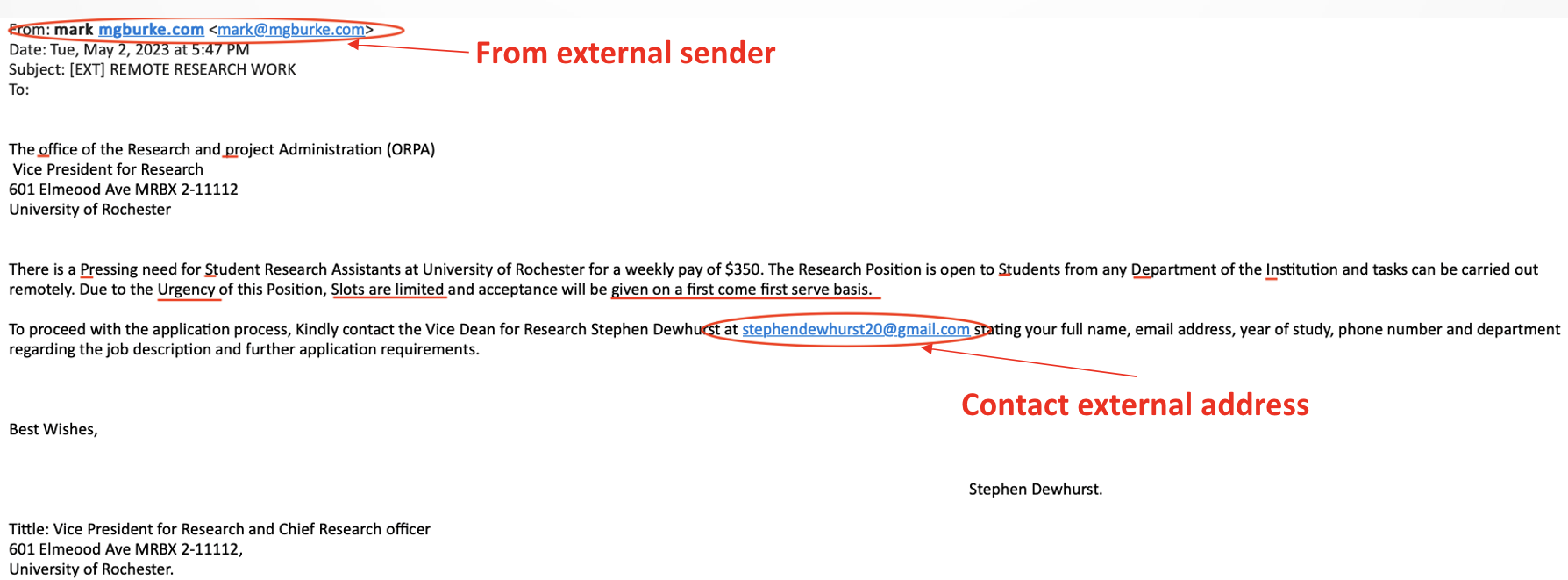Higher Education is a popular target for employment scams. While students are the primary victims, faculty and staff are also at high risk (research opportunities, etc.).
How do these work?
Malicious actors send phishing emails to their targeted victims posing as University officials or faculty members. These messages promise opportunities that are too good to be true, with enticing compensation and immediate hiring. A red flag! They then request that the “hired” individual provide their bank account information for direct deposit purposes. Keep in mind the University will typically never ask you to purchase anything (office supplies, gift card, etc.) prior to employment.
Should you receive any request to purchase items, please report them to the Help Desk directly.
Univ IT Help Desk
-
- (585) 275-2000
- univithelp@rochester.edu
ISD Help Desk
-
- (585) 275-3200
- ISDHelpdesk@URMC.Rochester.edu
Tips to identify potential job scams:
- Take a close look at the sender’s email address.
- Keep a look out for External Email Alert: If you see [EXT] in the subject line in your UR email, this indicates the sender is from outside of the organization.
- Be cautious when responding to offers via email
- Watch out for urgency. If there’s a lot of pressure to do it quickly, be wary.
- Be cautious anytime you are dealing with someone you don’t know and they are asking for personal information (bank account, social security #, etc.), or requests to purchase gift cards (legitimate business transactions don’t normally require you to buy a gift card, send photos of a gift card, or share gift card codes.
- If the person wants you to switch to a personal email or texting. Criminals do this to get you off our email system so we can’t block them.
- Trust your instincts. If something doesn’t seem right, ask a lot of questions and be ready to walk away.
- Contact the person or company through a known legitimate email, phone number, or website to confirm the offer.




